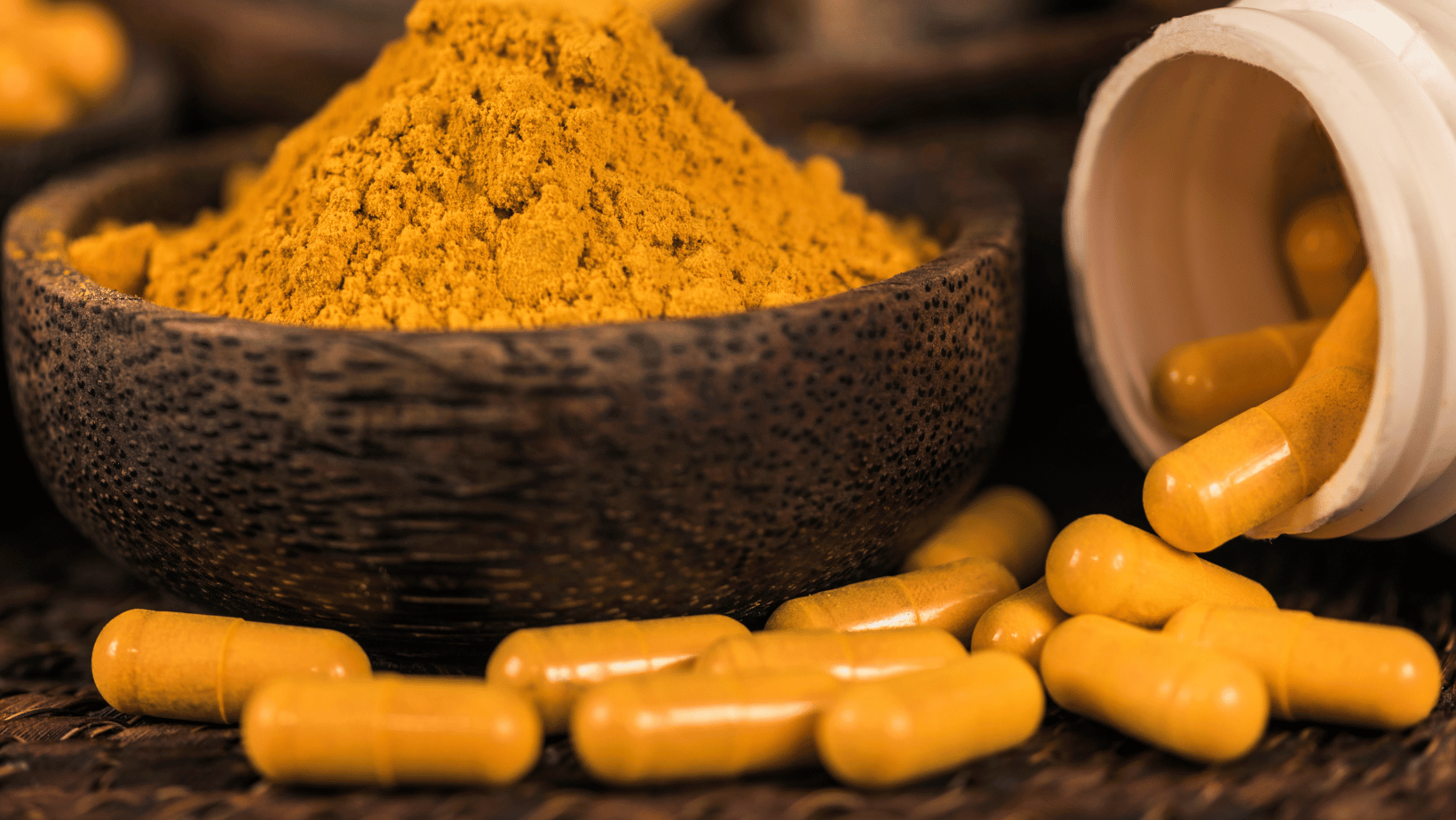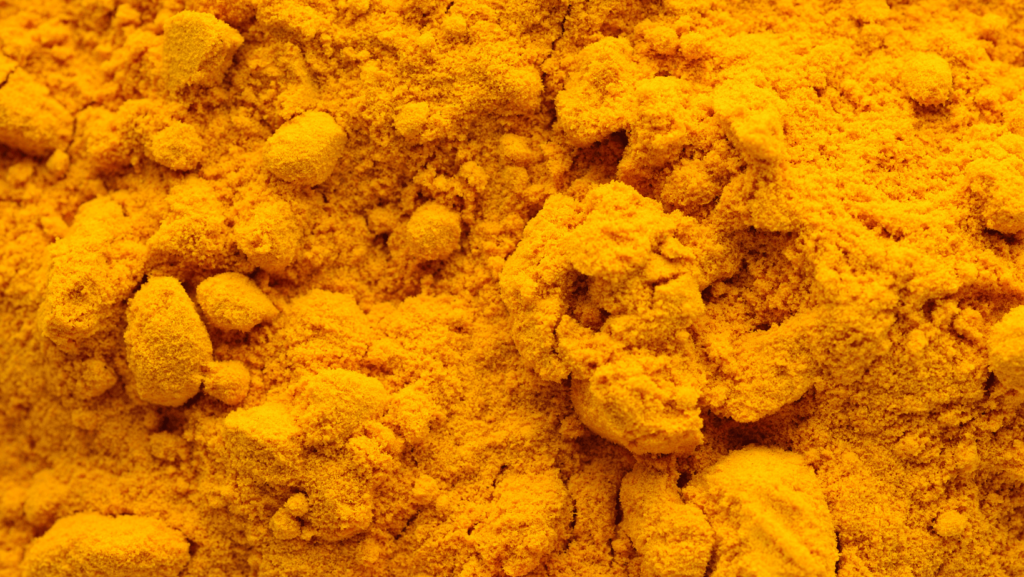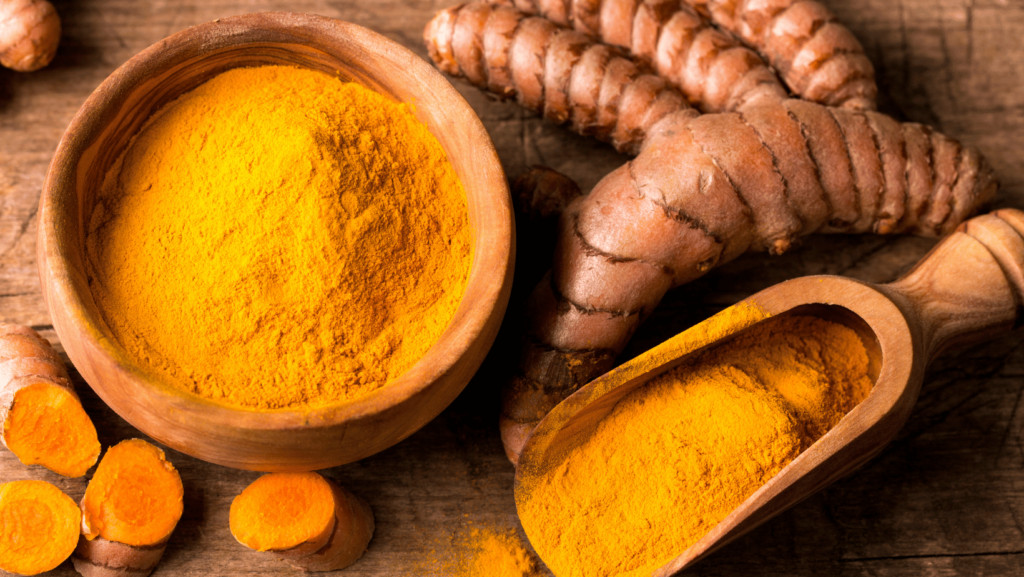
What is turmeric? A golden spice with ancient roots, turmeric has been making waves in the health and wellness sphere for its myriad of potential benefits.
But why has it gained such popularity? Unveil the secrets behind this vibrant spice and discover how it could potentially transform your health and well-being.
From its rich history and traditional uses to the science behind its powerful compound, curcumin, we’ll explore the incredible health benefits of turmeric and how you can easily incorporate it into your everyday life. Ready to embark on a journey into the world of turmeric? Let’s get started.
Key Takeaways
- Turmeric is an herbaceous plant with potentially powerful antioxidant and anti-inflammatory properties.
- It has been used for centuries in Asian cuisine and traditional medicine, providing numerous health benefits such as pain relief, inflammation reduction, and acting as an antioxidant.
- Turmeric can be incorporated into meals or taken through supplements. Safety should be taken into account when selecting a supplement to avoid potential risks or side effects.
Understanding Turmeric: Origins and Uses
Turmeric, hailing from the lush forests of India and Thailand, is a spice with a vibrant yellow color and unique flavor that has been used for centuries in Asian cuisine and traditional medicine. Known for its antiseptic and medicinal properties, turmeric has long been an essential component of Ayurvedic medicine. Today, a wide variety of turmeric products are available to help support people’s well-being.
Its active ingredient, curcumin, is responsible for the spice’s stunning hue and numerous health benefits.
The Turmeric Plant
The scientific name for the turmeric plant is Curcuma longa, a member of the Zingiberaceae family along with ginger. Native to the forests of South and Southeast Asia, the turmeric plant is an herbaceous perennial characterised by its turmeric root, which are yellow cylindrical rhizomes, alternate leaves, and a false stem.
The rhizome, or subterranean stem, is the source of turmeric powder and extract, while the leaves, flowers, and volatile oil play roles in traditional medicine and cuisine.
Culinary Applications
Turmeric’s versatility makes it a staple in Asian and Middle Eastern cuisine, where it is used in both savory and sweet dishes, adding a burst of color and flavor to each bite. As a key ingredient in curry powder, turmeric is responsible for the signature golden colour and complex taste that has delighted food lovers around the world.
From traditional South African geelrys (yellow rice) to the trendy turmeric latte or “golden milk”, turmeric’s culinary applications are vast and continue to evolve. But with great power comes great responsibility – be cautious when handling turmeric, as its vibrant yellow pigment can stain countertops and fabric.
The Power of Curcumin: Turmeric’s Active Ingredient

Curcumin, the star of the turmeric show, is the primary constituent of the spice and is responsible for its powerful antioxidant and anti-inflammatory properties. Research has shown that curcumin can suppress oxidative enzymes and exhibit anti-inflammatory effects, offering potential health benefits to those who consume it regularly.
It is estimated that turmeric contains between 2-8% of curcumin, making it a highly concentrated source of this potent compound. Capitalising on curcumin’s potency, turmeric might positively influence various aspects of human health, from potential pain alleviation to chronic disease prevention.
Enhancing Absorption: Turmeric and Black Pepper
To maximize curcumin’s benefits, effective absorption by the body is necessary. One way to enhance curcumin absorption is by combining turmeric with black pepper, which contains piperine, a compound known to increase the bioavailability of turmeric’s beneficial compounds by a staggering 2000%.
As a result, the combination of turmeric and black pepper not only makes curcumin supplements more easily absorbed but also boosts its effectiveness in the body, allowing you to enjoy the many health benefits of this powerful duo.
Health Benefits of Turmeric
With its rich history and impressive scientific backing, turmeric has emerged as a powerful force in the world of natural health supplements. Among its many potential health benefits, turmeric is known to provide relief from pain, reduce inflammation, and act as an antioxidant, all of which contribute to the overall well-being of those who consume it.
Investigating the specific ways turmeric can affect pain relief, inflammation reduction, and oxidative stress leads to a better understanding of this ancient spice’s role in promoting a healthier, happier life.
Potential Pain Relief and Inflammation Reduction
Turmeric’s anti-inflammatory properties can be attributed to its active compound, curcumin, which has been demonstrated to possess potent anti-inflammatory effects. By blocking the action of inflammatory molecules and enzymes, curcumin may potentially help alleviate pain and discomfort associated with various inflammatory conditions such as:
- arthritis
- colitis
- allergies
- infections
Research has shown that turmeric extracts may:
- Inhibit inflammation
- Improve clinical outcomes in knee osteoarthritis patients
- Assist with managing oxidative and inflammatory conditions like arthritis and anxiety
Including turmeric in your daily routine may potentially offer pain and inflammation relief, leading to an improved quality of life. Consider incorporating turmeric tablets as a convenient option.
Antioxidant Potential
Curcumin’s antioxidant potential is another noteworthy aspect of turmeric’s health benefits. As an antioxidant, curcumin has been found to neutralise free radicals, reduce oxidative stress levels, and scavenge reactive oxygen species, protecting the body from damage and oxidative stress-related conditions.
While further research is needed to fully comprehend the extent of curcumin’s antioxidant effects, it’s clear that the powerful compound within turmeric possesses the potential to defend our bodies against the harmful effects of free radicals and oxidative stress, promoting overall health and well-being.
Turmeric Supplements and Safety

For those interested in experiencing turmeric’s health benefits in a more concentrated form, turmeric supplements present a convenient and powerful option. Nevertheless, choosing the right supplement and being aware of possible risks and side effects linked with high doses of curcumin is essential.
Understanding how to choose an appropriate turmeric supplement and being aware of potential risks allows you to include this potent spice in your daily routine by taking turmeric supplements and enjoying its impressive health benefits. Turmeric capsules are one way to consume these supplements.
Choosing the Right Supplement
When choosing a turmeric supplement, factors such as absorption, quality, bioavailability, ingredients, and sustainability should be taken into account. Look for a supplement that:
- Promotes curcumin absorption
- Is of a reputable brand
- Has undergone third-party testing
- Has a high curcumin concentration
- Does not contain unnecessary additives
Also, consider supplements containing black pepper or piperine to strengthen curcumin absorption, ensuring optimal benefit from your turmeric supplement. Before beginning any new supplement routine, it is recommended to consult with a healthcare professional to ensure that it is appropriate for your personal situation.
Potential Risks and Side Effects
While turmeric offers numerous health benefits, it’s important to be aware of potential risks and side effects associated with high doses of curcumin supplements. Although rare, some individuals may experience digestive issues such as bloating, acid reflux, flatulence, and diarrhea, while others may encounter stomach upset, nausea, dizziness, headache, skin rash, and yellow stool.
Curcumin may interact with certain medications, such as:
- Aspirin
- Warfarin
- Heparin
- Clopidogrel
It is advised to exercise caution when taking turmeric or curcumin alongside medicines or supplements that have anticoagulant or antiplatelet effects. Always consult with a healthcare professional before combining curcumin with any medications or if you have specific health conditions.
Incorporating Turmeric Into Your Diet

Adding turmeric to your diet offers a safe and tasty way to relish its health benefits while lending a pop of flavor and color to your meals. Some ways to infuse your dishes with the goodness of turmeric include:
- Turmeric tea
- Curries
- Soups
- Salads
From turmeric tea and curries to soups, salads, and turmeric lattes, there are countless ways to incorporate this ancient spice into your meals, including using olive oil as a base.
Get inventive in the kitchen, try out new turmeric recipes, or just sprinkle a bit of turmeric to your preferred dishes for an immediate enhancement of flavor and health benefits.
Turmeric Recipes and Ideas
Adding turmeric to your meals doesn’t have to be complicated or time-consuming. With a few simple recipes and ideas, you can easily infuse your dishes with the vibrant color and health benefits of this powerful spice.
Start by trying turmeric tea, a soothing and antioxidant-rich beverage that can be enjoyed any time of day. For something more substantial, add turmeric to curries, soups, and stews for a warming and flavorful meal. Don’t be afraid to get creative – turmeric can even be used in sweet treats like cinnamon rolls, ice cream, and macarons.
From vegan soups and stews to indulgent desserts, there’s no shortage of ways to enjoy the incredible flavor and health benefits of turmeric. So go ahead, spice up your life, and discover the countless culinary possibilities that turmeric has to offer.
Summary
In conclusion, turmeric is an ancient spice with a wealth of potential health benefits. From its powerful active ingredient, curcumin, to its antioxidant and anti-inflammatory properties, turmeric is a true powerhouse in the world of natural remedies.
By incorporating turmeric into your diet, choosing the right supplement, and being aware of potential risks and side effects, you can unlock the incredible potential of this golden spice and transform your health and well-being for the better.
Other UK supplements that you may be interested in include:
- Ashwagandha KSM-66 Capsules UK
- Lion’s Mane Capsules UK
- Tongkat Ali Capsules UK
- Magnesium Capsules UK
- Shilajit Capsules UK
Frequently Asked Questions
What does turmeric do to my body?
Turmeric is packed with beneficial phytonutrients that can protect your body by neutralising free radicals and shielding cells from damage.
Is turmeric just ginger?
Turmeric and ginger are part of the same family, with turmeric being more brightly colored and milder in flavor. It is native to India and Indonesia, has a peppery aroma and strong, slightly bitter flavor, and should be used in larger amounts than its relative ginger. Curcumin is difficult for our bodies to absorb on its own.
Who should not use turmeric?
Pregnant and breastfeeding women, people on anticoagulants, and those with liver or bile duct problems should not take turmeric supplements. Cooking with turmeric shouldn’t be a problem.
What are the side effects of turmeric?
Turmeric is generally safe in food form; however, taking large amounts of it in supplement form for extended periods of time may cause stomach upset and, in extremely rare cases, ulcers. Additionally, side effects such as nausea, dizziness, and diarrhea may occur at higher doses. When applied to the skin, turmeric is likely safe.
What is the origin of turmeric?
Turmeric is native to tropical South Asia, belonging to the ginger family Zingiberaceae. It is grown commercially in Southeast Asia, primarily India, and its rhizome (underground stem) is used as both a culinary spice and traditional medicine.



